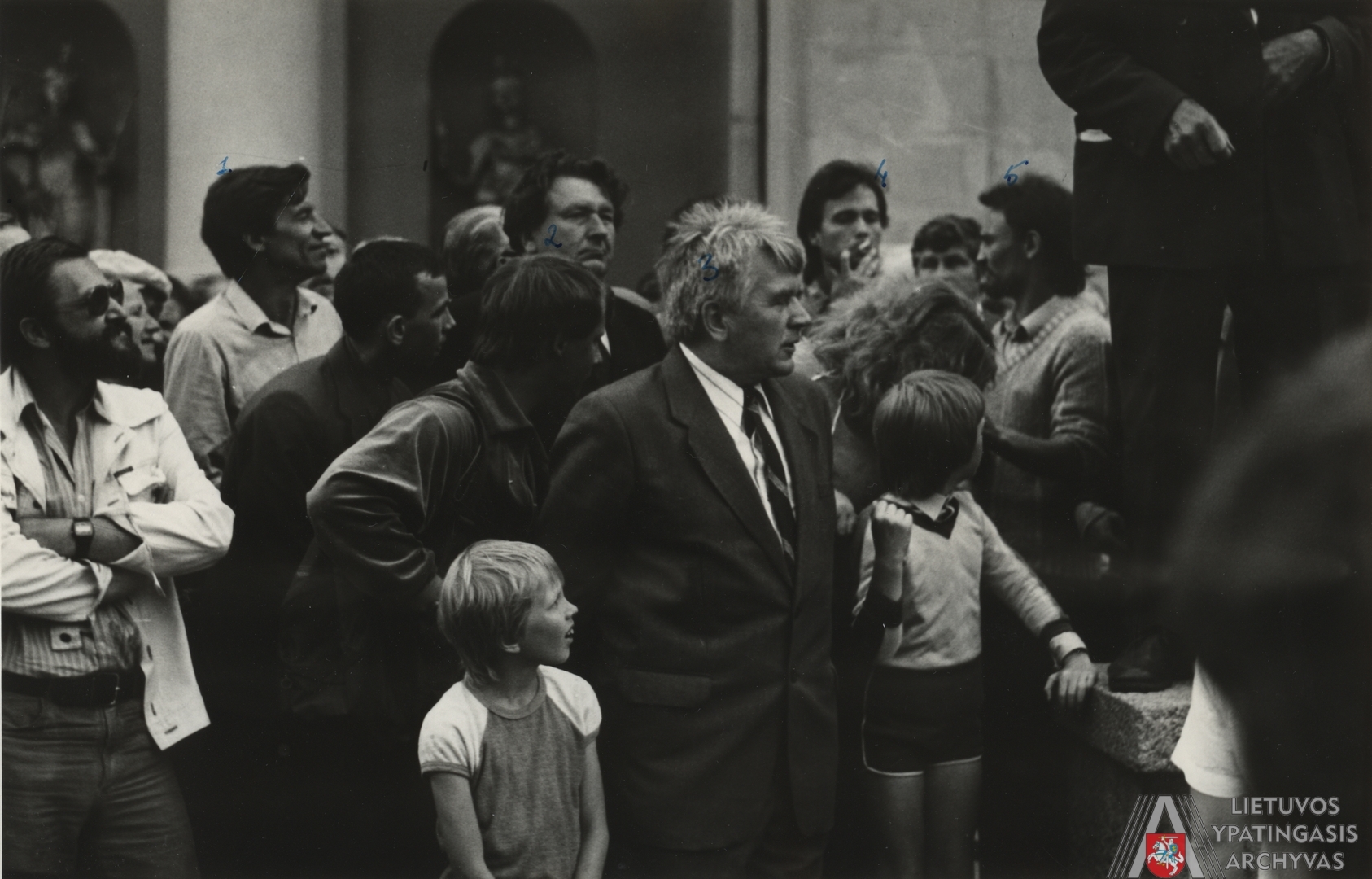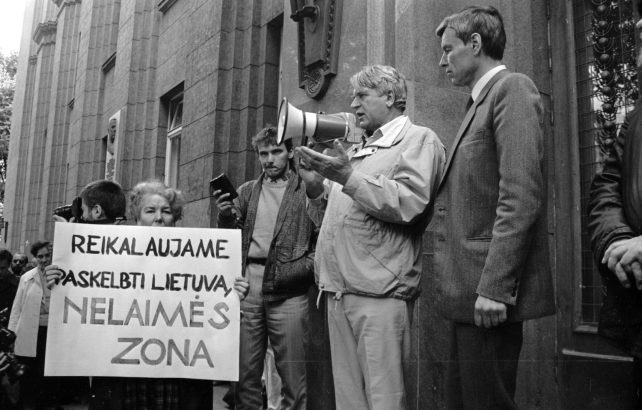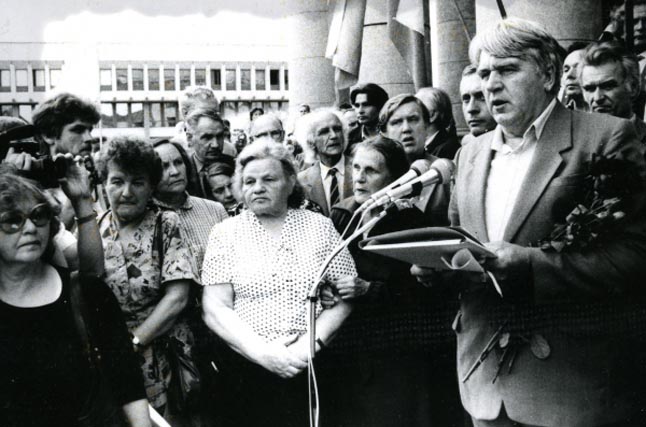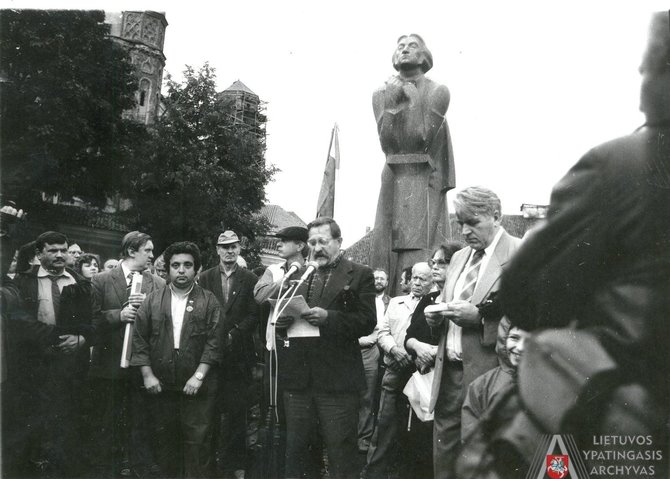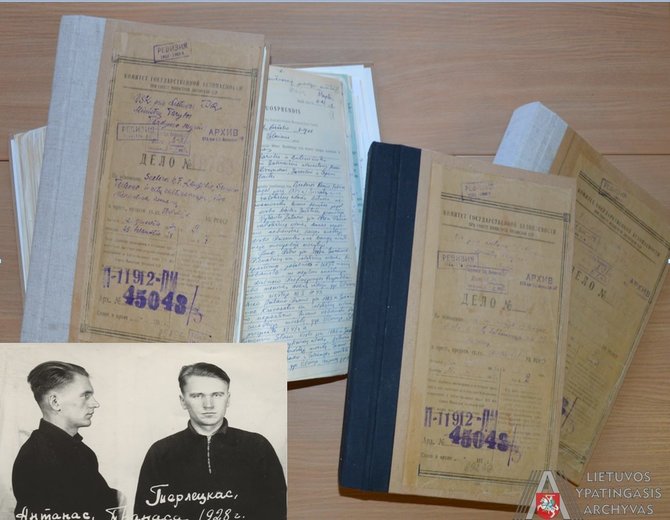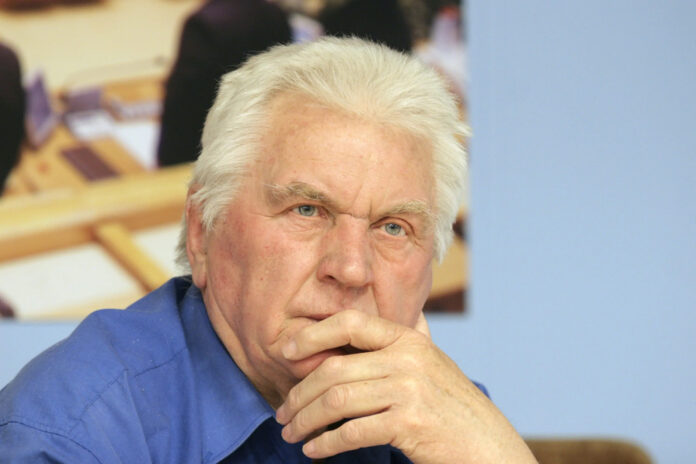
Antanas Terleckas was a Lithuanian hero – human rights activist, dissident, former political prisoner, founder of the Lithuanian Freedom League, winner of Lithuania‘s Freedom Award. He died this year at the age of 95 on the night of the anniversary of the Restoration of the Lithuanian State, February 16.
The General Director of the Lithuanian Genocide and Resistance Research Centre, Dr. Arūnas Bubnys noted that this man’s entire life was dedicated to fighting Soviet enslavement, the regime of lies and degradation. Prime Minister Ingrida Šimonytė described him as a unique Lithuanian patriot, who endured the worst circumstances yet never faltered in his fight for freedom, whose courage, determination and faith lives forever. He was persecuted, imprisoned and exiled, yet never lost sight of the significance of his goal or compromised his conscience.
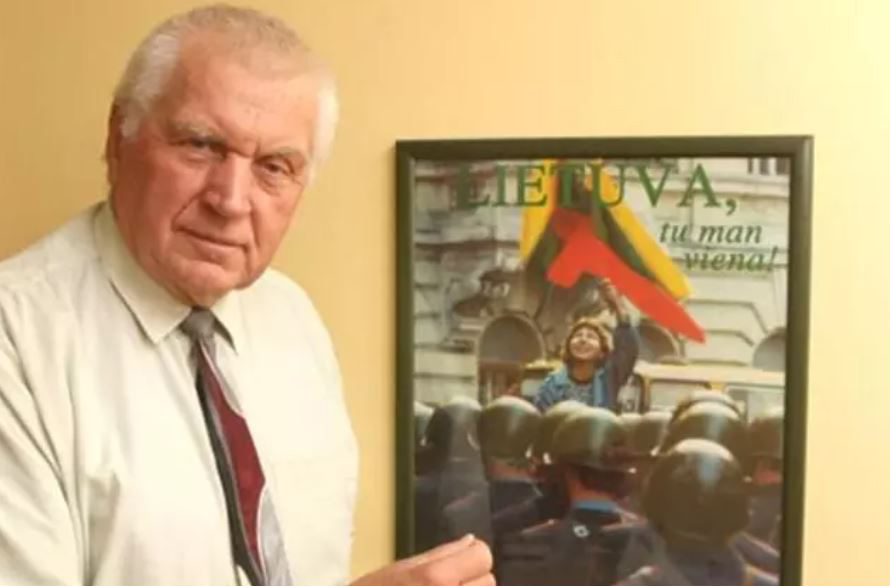 Born in 1928 in the Švenčionys (now Ignalina) district, Terleckas was first arrested in 1945 while in middle school for his membership in the underground “Iron Wolf” organization. He was released after a few months due to lack of evidence in his case. He moved to Vilnius in 1946, where he graduated from commercial school and was accepted to the Vilnius University Faculty of Economics. He continued his patriotic activities, travelling throughout southeastern Lithuania and Lithuanian-populated areas in Belarus to distribute Lithuanian literature and textbooks. He was arrested for this by the KGB in 1957. His case was fabricated, along with others who were accused of establishing an underground organization. The Supreme Court of Soviet Lithuania sentenced him to four years in a concentration camp in Irkutsk.
Born in 1928 in the Švenčionys (now Ignalina) district, Terleckas was first arrested in 1945 while in middle school for his membership in the underground “Iron Wolf” organization. He was released after a few months due to lack of evidence in his case. He moved to Vilnius in 1946, where he graduated from commercial school and was accepted to the Vilnius University Faculty of Economics. He continued his patriotic activities, travelling throughout southeastern Lithuania and Lithuanian-populated areas in Belarus to distribute Lithuanian literature and textbooks. He was arrested for this by the KGB in 1957. His case was fabricated, along with others who were accused of establishing an underground organization. The Supreme Court of Soviet Lithuania sentenced him to four years in a concentration camp in Irkutsk.
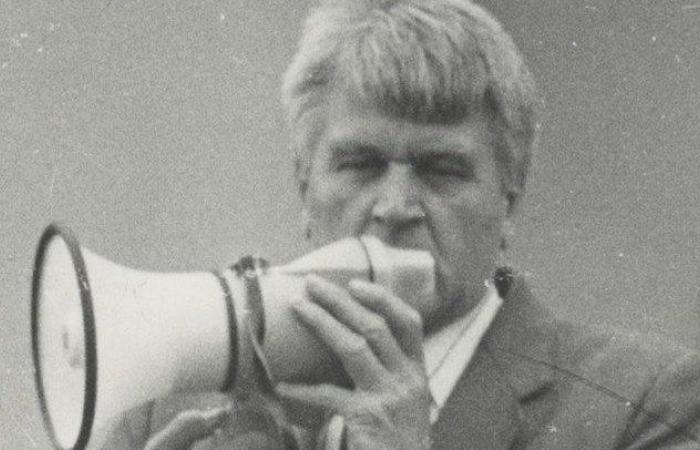 In 1976-1977, together with Julius Sasnauskas, Kęstutis Jokubynas and others, he produced the underground publication “Laisvės šauklys“ (Freedom Herald), and later “Vytis“. In 1978 they established the Lithuanian Freedom League to begin lobbying international organizations.
In 1976-1977, together with Julius Sasnauskas, Kęstutis Jokubynas and others, he produced the underground publication “Laisvės šauklys“ (Freedom Herald), and later “Vytis“. In 1978 they established the Lithuanian Freedom League to begin lobbying international organizations.
As the call for independence grew, Terleckas organized strikes and demonstrations, the most publicized one occurring on the anniversary of the Molotov-Ribbentrop Pact (August 23) in 1987 at the monument to poet Adomas Mickevičius in Vilnius. A petition was also launched for the Soviet army to leave Lithuania.
Once Lithuania declared Independence, Terleckas remained active in the country’s politics. He was the recipient of the Cross of Vytautas the Great, the Medal of Lithuanian Independence, and the Order of Vytautas the Great.
Terleckas was buried in the Rokantiškiai Cemetery in Vilnius.
